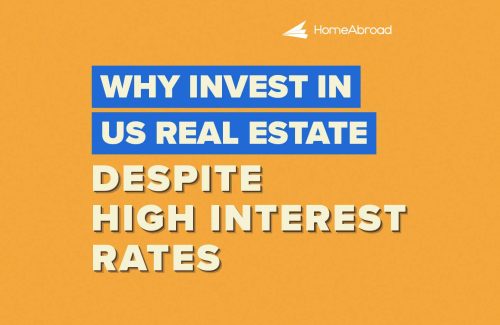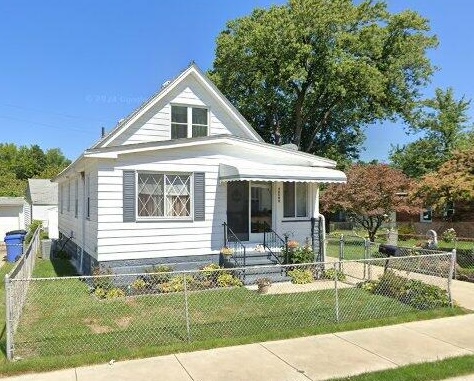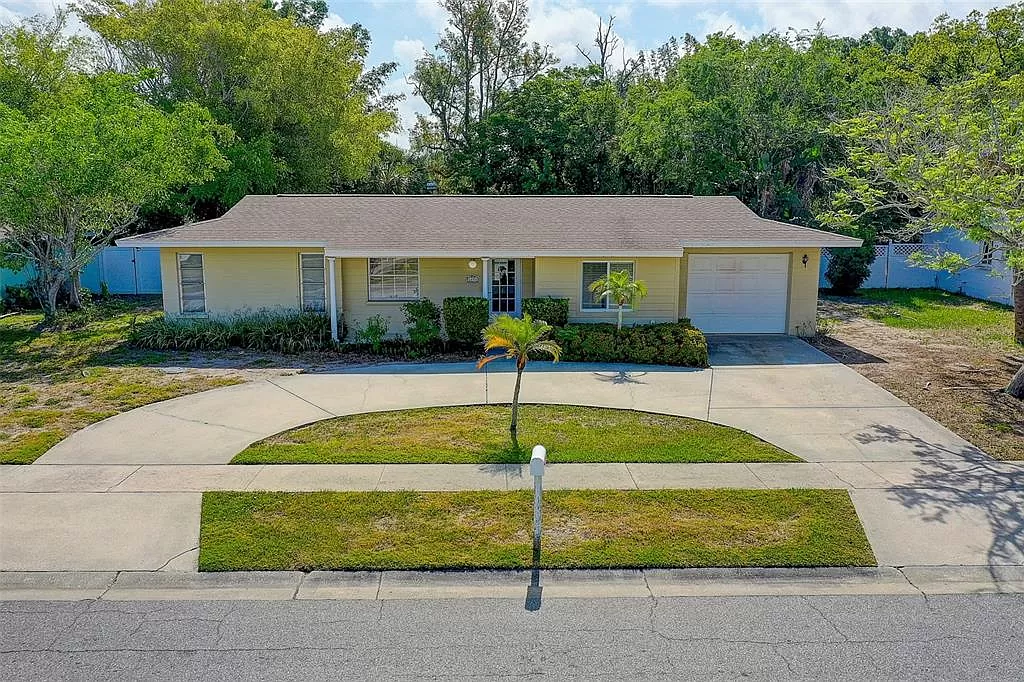Key Takeaways:
➡️ The current market offers discounted property prices, creating immediate savings for buyers.
➡️ Real estate provides consistent long-term wealth-building through equity and appreciation.
➡️ Buyers can refinance mortgages later to benefit from lower interest rates in the future.
The current US real estate market offers a unique opportunity for homebuyers and investors. With property prices seeing noticeable declines in many regions, it’s the perfect moment to act.
While high interest rates might seem discouraging, the benefits of investing in real estate now far outweigh the temporary challenges.
Securing properties at reduced prices allows buyers to build equity and benefit from future appreciation, ensuring long-term financial growth.
Let’s see why today’s market conditions make real estate an ideal investment and how you can capitalize on this opportunity.
Table of Contents
How Price Drops are Creating Investment Opportunities
The market is currently offering properties with noticeable price reductions compared to previous listings. These price drops provide:
- Immediate Savings: Reduced costs allow buyers to secure properties more affordably.
- Equity Growth Potential: Buying at a lower price ensures equity gains as the market stabilizes.
With expert mortgage solutions like HomeAbroad Loans, international buyers can get the most of these opportunities seamlessly, even without a US credit history. Domestic buyers can rely on HomeAbroad’s sister website, Ziffy Mortgages, to secure financing that works in their favor.
Lower purchase prices mitigate the impact of higher interest rates and create opportunities for strong returns on investment (ROI).
Real-Life Examples: Zillow Properties with Dropped Prices
One of the most compelling reasons to invest now is the availability of homes that have experienced significant price reductions.
We’ve conducted an in-depth analysis of these properties, evaluating their current prices, rental potential, cash flow, and ROI to provide a clear picture of their investment value.
Below are the findings from this analysis:
Property | Previous Price ($) | Current Price ($) | Price Drop (%) | Rent Estimate ($/mo) | Monthly Mortgage Payment ($) | Monthly Cash Flow ($) | Annual Cash Flow ($) | ROI (%) |
|---|---|---|---|---|---|---|---|---|
230,995 | 217,000 | 6.06% | 2,039 | 1,401 | 638 | 6,046.01 | 2.79% | |
347,000 | 337,000 | 2.88% | 2,570 | 2,140 | 430 | 2,230.73 | 0.66% | |
249,900 | 235,000 | 5.96% | 2,000 | 1,513 | 487 | 4,049.92 | 1.72% | |
559,000 | 539,000 | 3.58% | 7,521 | 3,384 | 4137 | 44,494.15 | 8.25% | |
374,000 | 367,500 | 1.74% | 4,437 | 2,328 | 1814 | 21,770.76 | 5.92% |
Methodology and In-Depth Analysis
This analysis aims to provide a comprehensive understanding of the investment potential of selected properties. By evaluating key financial metrics, we offer insights into why it is worth considering investing in US real estate right now, even when interest rates are high.
Metrics Used
- Price Drop (%): Reflects the percentage reduction in the property’s price, calculated as:
Price Drop (%) = [(Previous Price − Current Price) / Previous Price] X 100
- Monthly Mortgage Payment: Calculated using this online calculator assuming:
- Down Payment: 25% of the current property price.
- Interest Rate: 7.62% (annual fixed rate).
- Loan Term: 30 years (360 months).
The resulting mortgage payment reflects the principal and interest payments based on these parameters. This approach ensures a realistic assessment of financing costs, incorporating a standard down payment scenario often used by investors.
- Monthly Cash Flow: The difference between the estimated monthly rent and the monthly mortgage payment:
Monthly Cash Flow = Rent Estimate − Monthly Mortgage Payment
- Annual Cash Flow: Derived by multiplying the monthly cash flow by 12:
Annual Cash Flow = Monthly Cash Flow X 12
- ROI (%): Indicates the annual return on the property relative to its current price:
ROI (%) = [Annual Cash Flow / Current Price] X 100
Analysis:
1. Price Drops Create Immediate Buying Opportunities
The market is currently offering properties with price reductions compared to their previous listings. These price drops enable buyers to:
- Secure properties at reduced costs, locking in equity gains once the market stabilizes.
- Mitigate the impact of higher interest rates by offsetting upfront costs with lower purchase prices.
Key Insight: Lower purchase prices mean buyers can enter the market more affordably, reducing the overall financial burden and increasing potential ROI.
2. Positive Cash Flow in High-Demand Areas
The analysis reveals that rental income from high-demand areas surpasses mortgage payments in most cases, even with a 7.62% interest rate. Positive cash flow ensures:
- Immediate passive income generation.
- Reduced reliance on market appreciation for profitability.
Key Insight: High rental demand ensures stable and predictable income streams, making investments less sensitive to fluctuating interest rates.
3. ROI Reflects Long-Term Profitability
Average ROI Across Properties: Approximately 10%, depending on location and rental demand.
ROI metrics prove that even with high borrowing costs, real estate remains a profitable investment due to:
- Tax benefits (e.g., mortgage interest deductions).
- Long-term equity growth as property values appreciate.
Key Insight: Strategic investments in rental properties continue to outperform many other asset classes, providing a mix of steady returns and capital appreciation.
Why Shouldn’t You Wait for Interest Rates to Drop?
Analyzing historical mortgage rates provides valuable insights into the real estate market’s dynamics and informs strategic investment decisions.
Data from Bankrate reveals significant fluctuations in mortgage rates over the past decades, highlighting the interplay between interest rates and property values.
Historical Perspective:
1980s: Mortgage rates peaked at over 18% in 1981, primarily due to efforts to combat high inflation. Despite these elevated rates, the real estate market remained active, with property values appreciating over time.
1990s: Rates gradually declined, averaging around 7-9%. This period saw steady growth in homeownership and property values, indicating that even with moderate interest rates, real estate investments yielded positive returns.
2000s: Early in the decade, rates hovered between 5-8%. The mid-2000s housing boom led to increased property values, followed by a decline during the 2008 financial crisis. Post-crisis, rates dropped to historic lows, stimulating a recovery in the housing market.
2010s: Mortgage rates reached historic lows, dipping below 4% in 2012. This period experienced significant property value appreciation, with many markets recovering and surpassing pre-crisis levels.
Current Context:
As of November 2024, mortgage rates have risen to approximately 7.62%, influenced by economic factors and Federal Reserve policies aimed at controlling inflation.
Impact on Buying Decisions:
- Reduced Competition: Elevated rates may deter some buyers, leading to less competition and potentially more favorable purchase prices.
- Negotiation Leverage: Sellers may be more willing to negotiate on price or offer concessions to attract buyers in a higher-rate environment.
The Long-Term Benefits of Investing in Real Estate Now
1. Building Equity
Buying now allows you to start building equity immediately, benefiting from property appreciation and mortgage payments reducing the principal.
Historical Data: According to the S&P CoreLogic Case-Shiller US National Home Price Index, home prices have appreciated at an average annual rate of approximately 5.3% over the past 30 years. This consistent growth highlights real estate’s potential for long-term wealth building.
Example: Let’s consider a $300,000 home purchased today:
- At a 5.3% annual appreciation rate, the property would grow in value to $387,000 in five years.
- This represents an increase of $87,000, building significant equity and increasing your net worth.
2. Tax Benefits
Homeowners can deduct mortgage interest, property taxes, and other home-related expenses, reducing the financial burden of higher rates.
3. Locking in a Purchase Price
With property prices dropping, buyers can secure homes below market value and benefit from future appreciation.
4. Refinancing Potential
Today’s higher interest rates are temporary. Future refinancing at lower rates can significantly improve cash flow and affordability.
Conclusion
The current real estate market is a unique moment for investors to capitalize on price reductions, long-term equity growth, and stable rental income. Acting now ensures that buyers lock in value before property prices rise again.
Don’t wait for interest rates to drop—history shows that opportunities are best seized when the market presents favorable conditions. Whether you’re a foreign buyer or a US investor, platforms like HomeAbroad and Ziffy are here to help you navigate the market with confidence.

Find the best real estate agent with international expertise
Connect with a HomeAbroad real estate agent in your area.
FAQs
Should I invest in real estate when interest rates rise?
The effect on the real estate market can be positive as the mortgage rates rise. The inflation caused in the market of rental properties will lead to fewer rental purchases since not many people will be able to qualify for a mortgage.
Buying or investing during rising interest rates can be a better option because the interest rate hike will cause the prices to reduce for purchase.
An investor’s 1% increase in interest can turn into a windfall of profit in the right housing market. In addition, as mortgage rates go up, people are less likely to buy houses since it will be more difficult to get a loan. Therefore, there is an increased demand for rentals until people can afford to buy a house outright.
Are higher interest rates better for investors?
When interest rates decrease:
Bond prices get high
Chances of potential stock market gains
Lower interest rates on savings accounts
Commodity price rises
Mortgage rate falls
When interest rates are on a hike:
Bond prices lessen
The potential stock market is at a loss
More interest rates on savings account Commodity prices fall
Mortgage rate gets higher
While fluctuations in interest rates may have different impacts on investments, there is no single action you should take when they change. Instead, maintain a laser-like focus on your financial objectives, stick to your plan, and work with your financial advisor to build a balanced portfolio that can withstand any short-term effects of a rate change.
Is real estate a good investment during inflation?
Many foreign real estate investors turn to real estate as a stable investment during inflation. The real estate asset class has proven to be historically stable. In addition, it offers tax benefits, making it an attractive option compared to stock markets.
What happens to mortgages when interest rates rise?
When interest rise, mortgages become more expensive. This makes it less affordable for people to buy a home. When homes are less affordable, the demand for them goes down. This is a result of a slump in the housing market. Sellers then reduce prices to attract buyers.






















